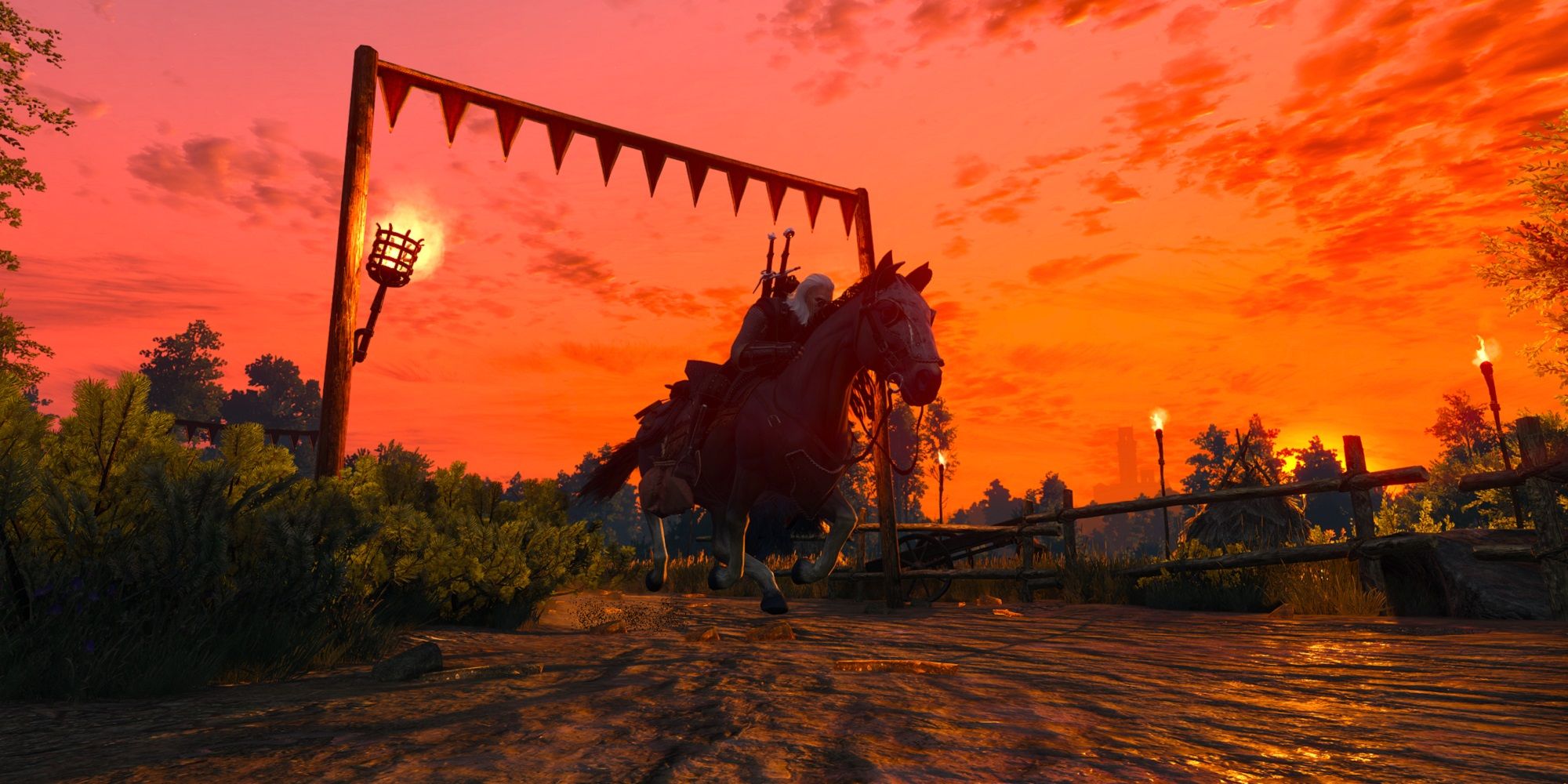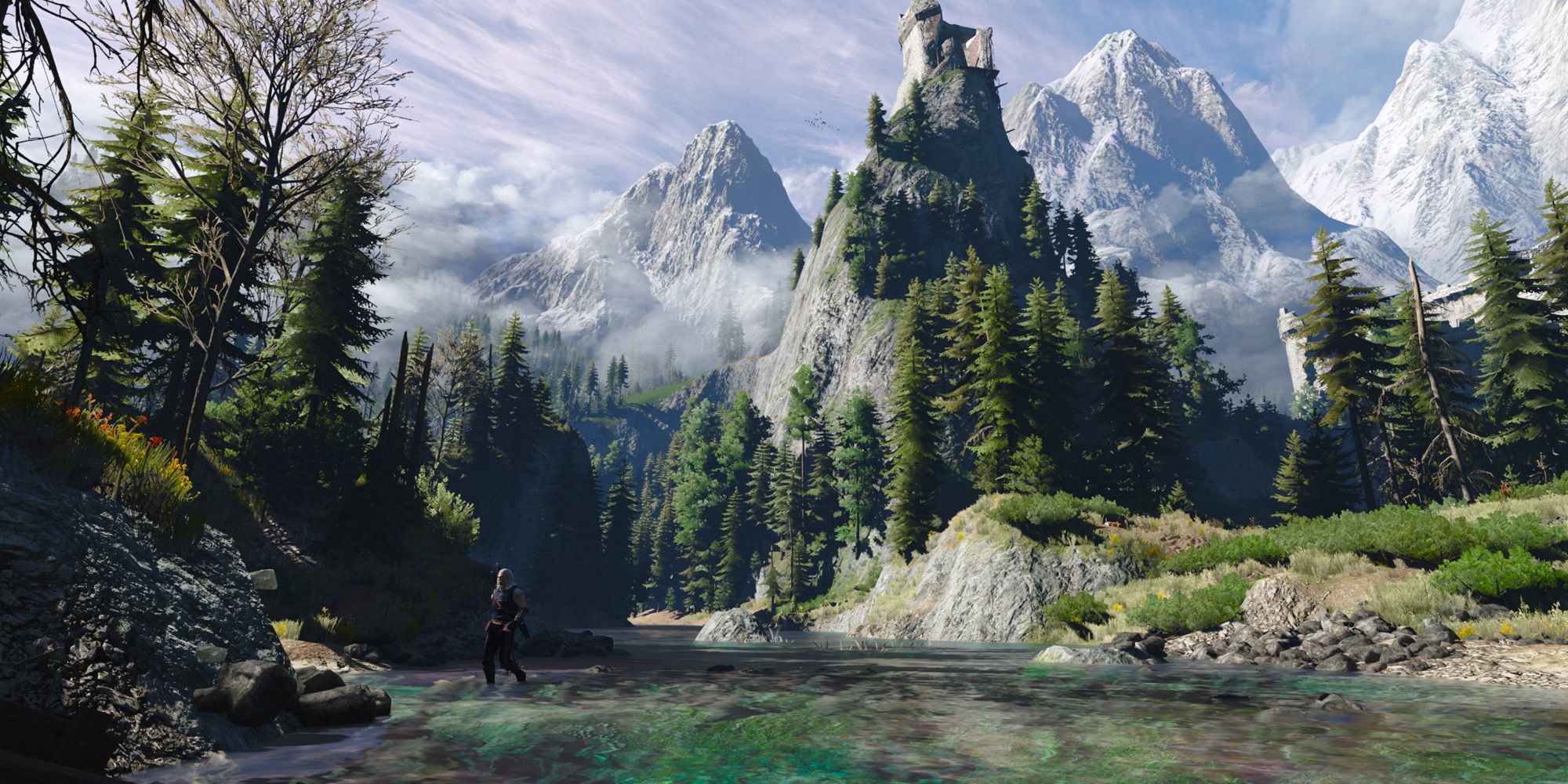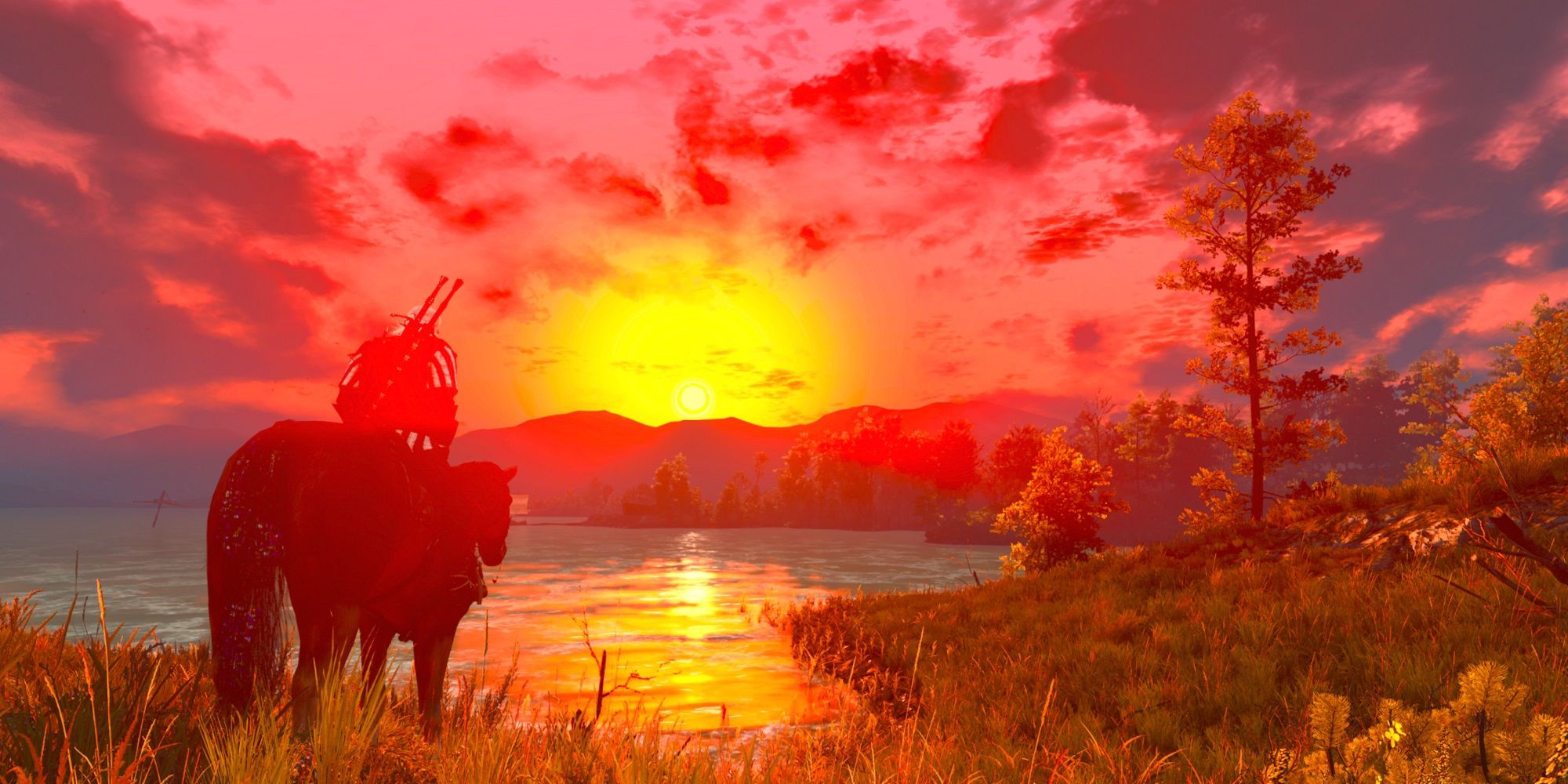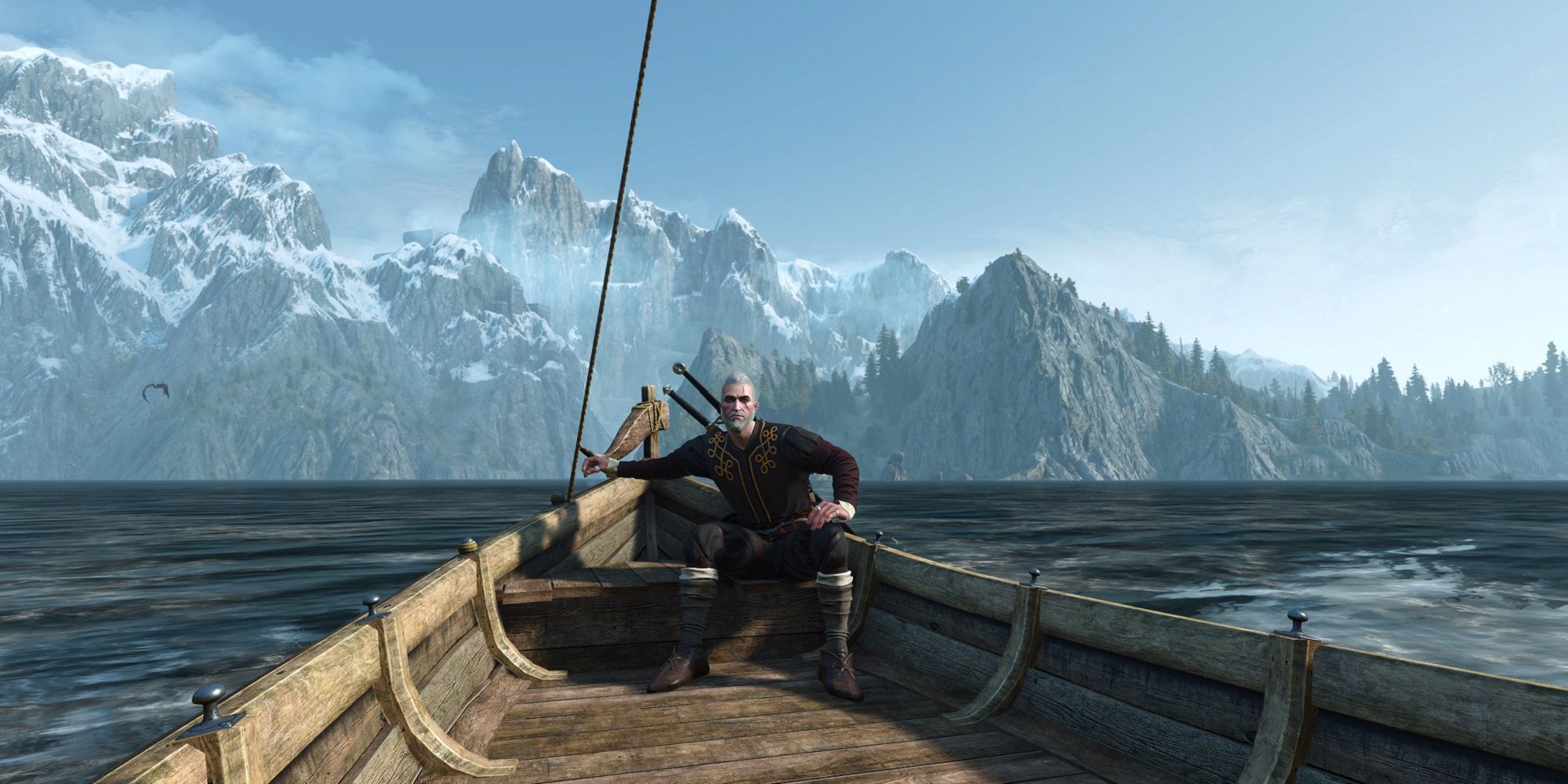Recent leaks for BioWare’s Dragon Age: Dreadwolf seem to show it taking cues from The Witcher 3 in its combat and presentation. The next Fable game is reportedly going to be a “Witcher-like”. Assassin’s Creed has repeatedly butchered its original ideas to add open world bloat and unnecessary side quests after the success of CD Projekt Red’s 2015 fantasy RPG. Eight years after its release, The Witcher 3 is still a direct and obvious influence on games in development, but no game since has figured out what made the formula work in the first place.
The Witcher 3 might seem impenetrable to begin with – I bounced off countless times – but once you get your head in the game, its massive open world never once feels bloated. It’s bristling with stuff to do, filled with mythical beasts to behead and side quests to conquer, but everything informs the story, and every mechanic points you in the direction of more brilliant stuff to uncover. The great writing and interesting quests help with this, but the real thing that makes The Witcher 3 great is its approach to fast travel.
Let me explain. The Witcher 3 lets you create your own stories. “You’ll never guess what I stumbled upon in the woods on the way to Novigrad/Undvik/a particularly interesting sword? A bloody Griffin/hard-as-nails bandit camp/whole questline that took me two hours to complete while I ignored Ciri’s pleas for aid!” And it does this by forcing you to explore.
Every mechanic encourages you to go somewhere else. Every quest leads you through small villages with their own noticeboards and villagers pleading for aid, which all lead you off the beaten path and away from your core mission in order to discover something new. Even combat sends you on myriad quests, as you pick smudged notes off dead bodies or see a cool piece of armour you want the full set of. I’ve talked before about how The Witcher 3 makes the most boring of mechanics exciting, and crafting is just one of them. I got sidetracked by an entire DLC just trying to upgrade my Feline Armour, and now I’m travelling across Toussaint trying to gather the right materials to Mastercraft it. Avellach’s portal can wait.
The Witcher 3’s portals are important, too. It would have been very easy for CDPR to implement free fast travel by calling up Yen or another sorcerer, who can zip you across the map. Instead, the developer showed restraint, and forced you to travel on foot or by Roach to signposts before you can fast travel. This is the perfect solution to getting across The Continent for a couple of reasons.
Firstly, it forces you to walk at least a bit of the way on either side of the signposts you’re travelling between. This leads to those brilliant roadside encounters that make you feel like a proper Witcher figuring things out for yourself. However, you’re still able to fast travel. Imagine if you had to get from Novigrad to Crow’s Perch by foot and hoof every time you wanted to play the next stage of the Bloody Baron’s quest? You just wouldn’t bother, you’d complete the quest in one sitting – and likely be pretty happy with the experience – but miss out on all the organic stories along the way. Side quests would feel like a drag if they took you too far out of the optimal path, and only diehard players would fully explore the world.
Fast travel helps the world feel manageable, but signposts make it feel real. They wouldn’t work if every other mechanic in the game was also forcing you to broaden your horizons and explore the world, however, and that’s where The Witcher 3’s successors fall down. Take Assassin’s Creed Valhalla, for example. It lets you fast travel from anywhere in the world, meaning you only ever explore the precise missions that you’re sent on. You explore a monastery, you synchronise, you fast travel back. It doesn’t help that the areas of the world between key locations in Valhalla don’t feel intentional, they feel incidental. You happen across far fewer interesting events between key points of Assassin’s Creed Valhalla, you just… travel. So fast travelling becomes the default option, and the word feels stale as a result.
Skyrim, which admittedly preceded The Witcher 3, allows players to pay for fast travel to new cities. The world of Skyrim is more interesting to explore than Valhalla’s England, but this undermines that impetus to discover. If Dragon Age: Dreadwolf and Fable 4 want to take inspiration from The Witcher 3, they need to go further than just lifting giant open worlds that are echoes of The Continent. Everything in The Witcher 3, from the roadside encounters to the limited fast travel, is curated and intentional, and subsequent copycats have shown that simply going through the motions doesn’t cut it. Open worlds need to understand The Witcher, not just mimic it.




